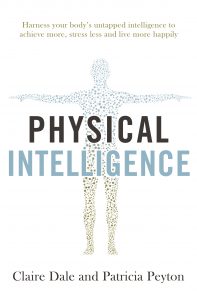Stress levels are on the rise – not surprising because we’re living in a world of unprecedented change, and worry and stress go hand and hand with uncertainty and risk.
Human beings are not evolving as quickly as the pace of change, leaving many of us feeling threatened or overwhelmed. We haven’t been trained to cope with the amount and pace of change around us – including changes in the workplace.
Do you ever worry or feel anxious? Do you sometimes react impatiently or angrily? Do you feel concerned about the future and if you’re up to it? Do you regularly believe that others are to blame for things? Or do you think things are always your fault? These are all high cortisol (the stress chemical) speaking.
Cortisol is a critically important chemical whose positive effects keep us alive. It numbs pain so that we can fight even if injured. It is the major player in our nervous system function that takes us into all challenging or competitive situations (arousal), improving short-term memory as we compete. However, in a sustained period of working under pressure or in a sustained ‘fight or flight’ environment, cortisol builds, making us over-aroused and anxious – we ‘choke’ and underperform, make poor decisions, struggle to think straight in complex situations, push our own agenda or choose the path of least resistance vs what is right to do.
Some people have found techniques to help them cope – a yoga class here, some meditation there (both of which are a great start), but we can do more.
Right now, hundreds of chemicals are racing through each of our bloodstreams. Those chemicals dictate how we think, feel, speak and behave. Yet, most of us operate largely at the mercy of those chemicals – experiencing reactions, emotions and thoughts without realizing that we can strategically influence them. Physical Intelligence is the ability to detect and actively manage the balance of those chemicals so that we can achieve more, stress less and live more happily. Let’s focus on stressing less.
Being able to stress less does not mean living stress free. The purpose of ‘stressing less’ is to reduce the prevalence of reactionary responses to non-life threatening events and to change the mental and emotional environment inside ourselves so that we can maintain peace of mind in high risk situations.
The chemistry of stress is high cortisol (threat) and high adrenalin (acceleration) against a back-drop of high testosterone (risk-tolerance) and a drop in dopamine (pleasure/reward), which makes stress physically uncomfortable – painful muscles, locked joints, a quicker, shorter breathing rhythm, a grip around the heart and in the gut, a sense of alarm and lack of enjoyment. We instinctively want to transform that state into one of greater calm, stability, relaxation, and optimism.
Here are seven steps to help you do it:
Ground Yourself
Feeling your feet on the ground, your bottom in the chair and the weight of your body distributed through your skeleton (and the furniture, if seated) down into the ground gives you immediate stability. Grounded = emotional and mental stability.
Manage Your Breath
Managing your breath pattern is THE key technique to stabilising your heart rate and the physiological aspects of the stress response. Slow down your breath pattern, pacing it regularly with longer out breaths to transform a toxic ‘catabolic’ internal state into a non-toxic ‘anabolic’ internal state. Regular breath practice stabilises the nervous system and balances our way of thinking.
Focus on Fitness
Regular exercise is important, elevating our heart rate at least 3 times a day. If not, the parasympathetic nervous system will be too sluggish for us to rebalance when we encounter stress. If we encounter multiple stressors per day or week, they will build up and we’ll likely feel overloaded – the opposite of grace under pressure.
Talk It Out
Verbalising stressors removes their charge. Getting advice helps us process and learn from what is happening. Stress builds through a lack of control, rumination and difficulty deciding what action to take – leaving us feeling isolated. In contrast, reaching out to a trusted network of supporters boosts oxytocin, specifically designed to reduce cortisol levels, released through non-aggressive, honest, human contact.
Build Optimism
Processing negative events efficiently and applying a learning mindset to what we do enables us to “bounce positive,” rebooting serotonin, oxytocin and dopamine levels and developing a robust, realistic optimism. Two other ways to help build optimism are to literally jump (for joy) each day and smile at yourself in the mirror, boosting serotonin.
Get Some Sleep
Sleep has a more significant impact on our mental, emotional and physical performance than any waking activity. When we sleep, we consolidate memories and experiences, detox the brain of waste products and regenerate brain cells. This makes a profound difference to our daily performance, enabling us to think clearly and deeply, focus well and handle multiple challenges with ease. Inch up your hours of sleep through naps, proxy sleeps and going to bed even a few minutes earlier each night in order to reach that magic minimum of seven hours of sleep per night.
Relax
Relaxation techniques are crucial to providing balance in our busy lives. Use your energy wisely – rather than putting your foot flat on the accelerator every day, then collapsing at the weekend, schedule regular moments of REST: Retreat, Eat [healthy], Sleep, and Treat) and honor those windows.
With these seven steps you will be well on your way to managing your stress at work!
Claire Dale and Patricia Peyton are the authors of new wellbeing book Physical Intelligence (Simon & Schuster), available now in ebook and hardback, priced at £14.99.

If you are a job seeker or someone looking to boost their career, then WeAreTheCity has thousands of free career-related articles. From interview tips, CV advice to training and working from home, you can find all our career advice articles here.









